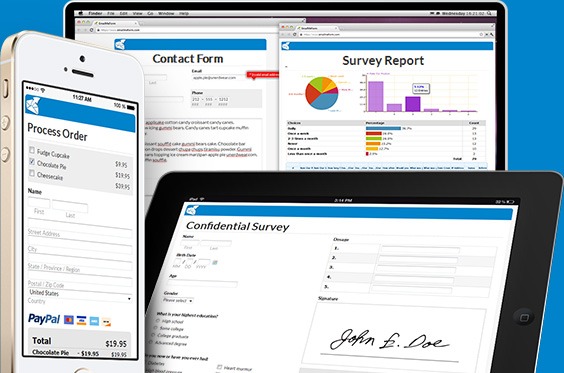7 Principles to Grow Your Business – Chapter 2: Principle 1 – Increase Leads
Understanding the Significance of Lead Generation
In the pursuit of business growth, lead generation plays a pivotal role. Leads are potential customers who have shown interest in your products or services. They are the fuel that propels your business forward, offering the opportunity to nurture relationships and convert them into paying customers. By comprehending the significance of lead generation, you can lay a strong foundation for sustainable growth.
Proven Strategies to Attract Quality Leads
To attract quality leads, it is crucial to employ effective strategies tailored to your target audience. Here are some proven lead-generation strategies:
- Content Marketing: Create valuable and informative content, such as blog posts, articles, and videos, that resonate with your target audience. Share expertise, insights, and solutions to their pain points. By positioning yourself as a trusted authority, you can attract quality leads who see value in what you have to offer.
Example: A software development company creates a comprehensive guide on selecting the right programming language for different applications. This guide appeals to developers who are searching for guidance, positioning the company as a reliable resource and generating quality leads.
- Social Media Advertising: Utilise popular social media platforms, such as Facebook, Instagram, and Twitter, to reach your target audience effectively. Develop targeted ad campaigns that align with the interests and demographics of your ideal customers. Engage with your audience through compelling visuals, persuasive copy, and clear calls-to-action.
Example: A software development company creates a comprehensive guide on selecting the right programming language for different applications. This guide appeals to developers who are searching for guidance, positioning the company as a reliable resource and generating quality leads.
Example: A fitness clothing brand runs a Facebook ad campaign specifically targeting fitness enthusiasts aged 25-40. The ads showcase their latest activewear collection and offer an exclusive discount for first-time buyers, driving quality leads to their website.
Leveraging Digital Marketing Channels for Lead Generation
Digital marketing channels provide a vast landscape of opportunities for lead generation. Here are key channels to leverage:
- Search Engine Optimisation (SEO): Optimise your website with relevant keywords, meta tags, and high-quality content. This helps your website rank higher in search engine results, driving organic traffic and attracting potential leads actively seeking information or solutions related to your industry.
Example: An SEO agency ensures their website is optimised for keywords like “SEO services” and “SEO consulting.” This way, when businesses search for these terms, they are more likely to discover and engage with the agency’s website.
- Pay-Per-Click (PPC) Advertising: Launch targeted PPC campaigns using platforms like Google Ads or Bing Ads. Create engaging ads that appear when users search for relevant keywords or phrases. You only pay when someone clicks on your ad, providing a cost-effective method to drive qualified leads to your website.
Example: A travel agency sets up a Google Ads campaign targeting keywords like “luxury travel packages” and “all-inclusive resorts.” Their ads appear prominently in search results, attracting potential leads who are actively looking for luxury travel options.
Converting Website Visitors into Leads
Once potential leads arrive on your website, it is important to capture their information and convert them into leads. Here are effective strategies to achieve this:
- Call-to-Action (CTA): Place clear and compelling CTAs throughout your website, prompting visitors to take a specific action, such as downloading a guide, signing up for a newsletter, or requesting a consultation. Ensure CTAs are prominently displayed and guide visitors towards becoming leads.
Example: A digital marketing agency includes a prominent CTA button on its homepage, inviting visitors to download a free e-book titled “Mastering Digital Advertising.” Interested visitors can enter their contact details to access the e-book, transforming them into leads.
- Landing Pages: Create dedicated landing pages that provide focused and relevant information to visitors. These pages should highlight the benefits and value propositions of your products or services. Include lead capture forms on landing pages to collect contact information from interested visitorsExample: A software company creates a landing page specifically for their project management software. The page highlights key features, benefits, and success stories. Visitors can enter their email addresses to request a demo or access a free trial, allowing the company to capture leads interested in their software.
Nurturing Leads for Higher Conversion Rates
Capturing leads is just the beginning; nurturing those leads is essential for higher conversion rates. Establishing a strong relationship with leads and providing them with valuable content can guide them towards making a purchasing decision. Here are strategies to nurture leads effectively:
- Email Marketing: Develop a targeted email marketing campaign to engage and educate leads. Send personalised and relevant content such as newsletters, industry updates, case studies, and exclusive offers. Keep your leads informed and build credibility and trust.
Example: An e-commerce store sends a series of automated emails to leads who have shown interest in a particular product category. The emails provide useful tips, product recommendations, and limited-time discounts, nurturing leads and encouraging them to make a purchase.
- Lead Scoring and Segmentation: Implement lead scoring to assess the level of interest and engagement of your leads. Segment your leads based on their interests, behaviour, or demographics to provide more tailored and relevant content. This ensures that your leads receive information that aligns with their specific needs and increases the chances of conversion.
Example: A software company scores leads based on their interaction with various product pages, webinar registrations, and email opens. They segment leads into categories such as “highly engaged” or “product-specific interest” and deliver targeted content accordingly.
By understanding the significance of lead generation and implementing effective strategies, you can attract quality leads to your business. Through digital marketing channels, conversion optimisation techniques, and nurturing strategies, you will enhance your lead generation efforts and increase the likelihood of converting those leads into valuable customers. In the following chapters, we will explore additional principles to further grow your business.





